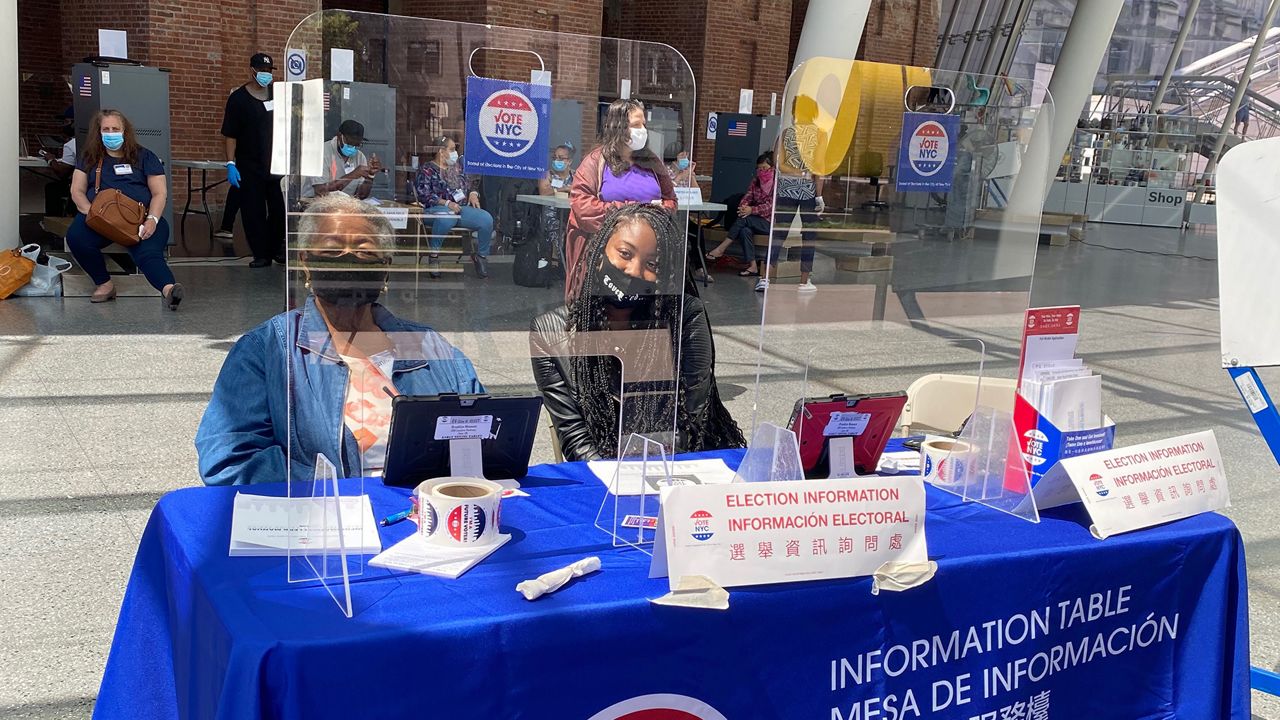New Yorkers stayed home as a deadly pandemic swept through the state. They marched and protested against systemic racism when a Minneapolis police officer killed George Floyd last month.
And now, they're voting.
"We have three crises we're living in right now," said Caiti Anderson, an attorney in Albany. "We have a pandemic, we have an economic recession and at the same time we have a reckoning that's finally occurring about race."
The state and nation face a raft of historic issues that have become touchstones for what is motivating voters, driving them to the polls amid a pandemic and societal upheaval.
The pandemic has supercharged issues like health care and joblessness, which stands at more than 14 percent in New York. Added to that are calls for overhauling policing and law enforcement, as well a broader conversation surrounding racial injustice many see as ingrained in society.
"Of course I'm going to go vote," Anderson said. "It would make no sense to. Besides being out there in the streets, voting is the easiest way to get your point across."
Leah Brand is a campaign volunteer for Democratic House candidate Mondaire Jones. The pandemic has fueled her concerns about health care, she said.
"We're in the middle of a pandemic, which is why people are losing their jobs so they need health care," she said. "For me, health care is a human right and it should be."
She's voting in person because she never received her absentee ballot. But she's more concerned with people who are immune-compromised and never got one, either.
"It's been really frustrating to have conversations with people who can't go to the polls and vote and who never got their absentee ballots," Brand said.
Matt Slevin is voting in person and was initially wary to do so. But he's confident that with a lowered infection rate, it was safe to do so while taking precautions like social distancing and using hand sanitizer.
"If this was a couple of months ago, I would be much more hesitant to go in person," he said. "But I'm confident it will be OK."
The former Siena College student says he gravitates toward candidates who can cut through the current polarization.
"You're going to get so much accomplished if we don't have an us-versus-them mentality," he said.
And he's got health care and student debt on his mind as well.
"The cost of college has skyrocketed in recent years and it's so much more difficult for people in my generation to pay back what they owe -- just the average person, a person who doesn't have a scholarship; than it did for a generation before," he said.
New York typically has a lower turnout every election year. It remains to be seen if that changes this year. And it's typical for voters to return incumbents to office. But this year may be different as voters see a country that has become sicker, poorer, and angered by racial injustice.
"People have been protesting for weeks now," said Anderson, the Albany attorney. "People want more than just a band-aid over systematic racism. You are on notice at this point, elected officials. You don't go into the elected office for job security."


